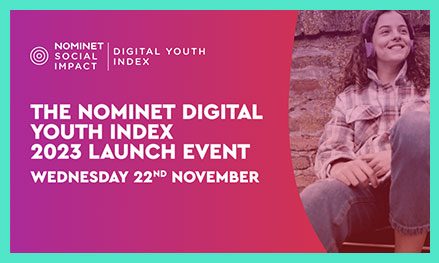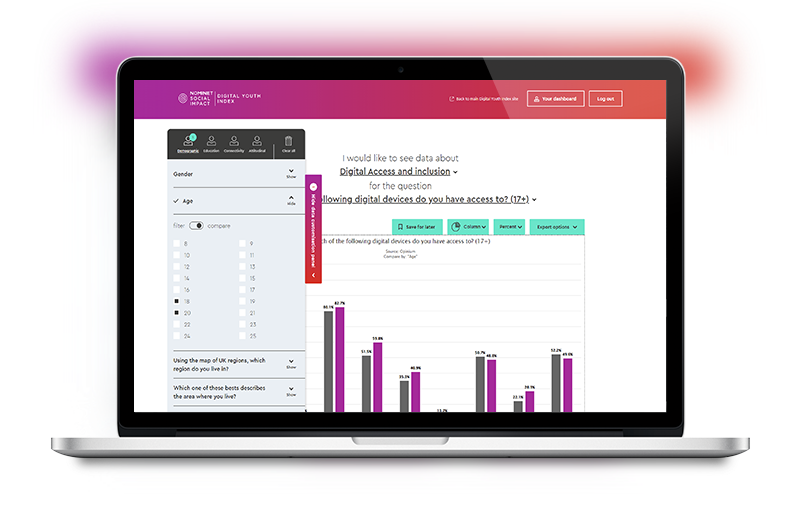Whilst reviewing and compiling the questions for the 2023 Digital Youth Index in spring last year we were shocked at the lack of youth voice in the heightened AI debate at the time. Given Generative AI will impact young people as much as any other group (if not more given the length of lives and careers ahead of them) we were struck by surveys and discussion pieces that instead focused on doomsday scenarios of the future.
One advantage we’ve built into the Index is that whilst we retain a core set of questions for year-on-year analysis, we’re able to add in topical questions each year to find out what young people are thinking about the hot topics of the day. In 2022, for example, we added questions about the cost-of-living crisis.
So for our small contribution in this space, in 2023 we added some questions about AI to our research. First, whether young people are worried that AI will replace jobs in the future, and second, if they had used an AI chatbot (e.g. ChatGPT or Snapchat AI) with an additional open text box on how they may have used it.

Our findings showed a strong sense of curiosity amongst young people, with 35.7% of respondents having tried out Snapchat AI at the time. Given the short period of time that these products had been live, this was a huge number of young people. Our fieldwork took place in May 2023, and we suspect that the numbers found in May 2024 would differ wildly again as the technology becomes more ingrained with our online lives.
Views on job disruption, too, we suspect will have evolved with time. In our survey, 18.4% of young people strongly agreed that they were worried that AI will replace jobs in the future. But views were mixed and 16.4% stated that they simply didn’t know. Just like every other demographic, the younger amongst us hold a mixture of excitement, fear, hope and dread about what these technologies can bring.

Much of the narrative around AI has focused on the extreme scenarios. Stories that grab our attention such as humanoid robots taking over the planet or a rogue paperclip AI running amok (not you of course, Clippet). In an article on AI narratives for JRF, Dan Stanley shows that while these narratives take hold, we are locking ourselves into a less bright future with the building of the vast new data centres required to stand these systems up. These require vast use of energy and water whilst the machine learning itself repeats historical injustices by offshoring low paid and badly treated labour in the development phase.
If nearly 54% of the young people we surveyed are concerned about their future jobs due to AI, a whopping 95% of children are concerned about climate change according to research taken out before COP26 by Votes for Schools. Can the lofty aims of the most evangelical AI futurist be achieved by short sighted and damaging actions now?
Having given it some thought, influenced not least by the JRF series on AI for public good, I do think rooting the discussion back in the here and now is an important reframing we can all take when thinking about the prevailing narratives around AI. We know digital access is not even – the 2023 DYI estimates around 500,000 children and young people in the UK lack a learning device. This makes it hard to imagine an equitable realisation of the potential benefits that AI can bring.
Whether the end of days scenarios surrounding AI could be contributing to young people’s outlook on their future would be conjecture at best. What is clear is that there is a large list of things young people are concerned about in their everyday lives. Young people in the UK face challenging prospects, with research from The Prince’s Trust suggesting that happiness in work, education qualifications and money is at an all-time low and mental health barriers to human flourishing at a high.
It is easy to get caught up in the science fiction narratives, but we would be remiss to lose sight of what interventions we can make to improve the lives of young people right now.
Share this article









